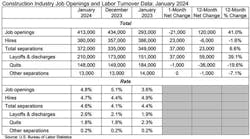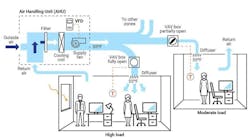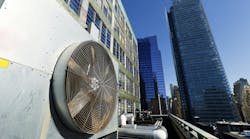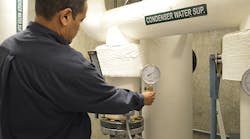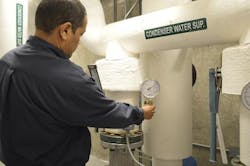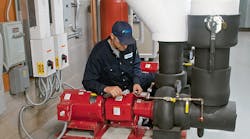A commercial chiller is a machine used to cool through either vapor-compression or absorption refrigeration cycle. Vapor-compression is a commonly used method for air conditioning large buildings, as well as commercial refrigeration, such as those found in large warehouses responsible for storing frozen items. This makes the efficiency of the chiller an obvious priority for property and business owners.
With this being said, it’s important to take the necessary steps for commercial chiller maintenance in order to keep them up and running in a safe and healthy manner. This includes preventative maintenance and scheduling service inspections. Just like any other area of HVAC, chillers should undergo a list of specific maintenance tasks to ensure efficient operation. It’s recommended they take place annually, or more frequently if needed, such as seasonal.
1. Drop heads of the chiller unit.
2. Brush Tubes. Cleaning tubes ensures better heat transfer. Heat transfer is directly related to chiller efficiency.
3. Take Oil Sample While Chiller is Operating. Oil analysis will indicate whether the oil needs to be changed or not.
4. Take Refrigerant Sample. Refrigerant can tell a lot about the operation of the chiller. If the refrigerant is charged correctly, it ensures a leak free unit. Too much or too little refrigerant can cause possible damage to the compressor impeller, refrigerant carryover, reduced capacity, an overloaded motor, and excess power consumption.
5. Perform Eddy Current Testing. Eddy current analysis is an electromagnetic technique and is completely non-destructive. It works on the principles of electromagnetic induction. There is no dangerous radiation or hazardous chemicals involved with this technique.
At USCS (US Chiller Services New York), we specialize in the inspection of installed heat exchanger tubing used in the commercial AC, power, pulp, marine, and chemical industries. Eddy current is limited to testing metallic materials and works best on nonmagnetic alloys.
6. Stay on Top of Water Treatment. Monthly water analysis reports are done to check the quality of water, and help to indicate if any adjustments are needed. Consider the environment when choosing a water treatment service, such as one that uses technology and innovation to be sustainable.
7. Document Performance. Chiller operators should document chiller performance daily with an accurate and detailed log, comparing this performance with design and start-up data to detect problems or inefficient control set points. Around the clock monitoring can be made available through web or smartphone options.
8. Prepare for Winter. To avoid freeze ups, maintain a 40 degree set on heat trace systems. Also check the status of dampers and building controls, and protect mechanical rooms (room is heated, sprinkler head is heat traced and insulated).
Trouble Signs to be Aware of:
• Leaks/Lack of Refrigerant
• Strange Noises (squeaking, shaking)
• Not Reaching Set Thermostat Temperature
• Poor Water Flow
Chiller malfunctions are not only inconvenient for property and business owners, they can be unsafe for those occupying the building as well. Faulty units are especially dangerous for the personnel working with the equipment in the building or on the roof. They’re also wasteful. As chillers experience a malfunction, they’re forced to work harder, increasing the amount of energy needed. The environment takes this hit, along with your wallet.
Have your chiller serviced regularly to avoid reaching this point. Professional technicians will know what needs an upgrade, what needs a repair and what needs to be replaced. Keeping a chiller in tip-top condition is a good business practice.
John Losey is owner and founder of The BP Group. The BP Group is a leader in HVAC maintenance, HVAC mechanical systems, systems service, and building technology, with a focus on New York City. The BP Group’s website can be found at bpgroup.com.
